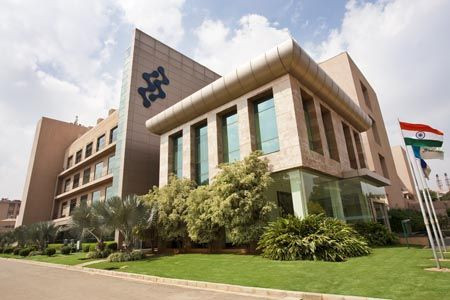Biocon Topline Suffers After Middle East Conflicts Hit Sales, Shares Plunge

India's Biocon Ltd (BOM:532523), a generics major that also owns the country's largest drug research and development services unit, reported its topline suffered from the ongoing geopolitical turmoil in the Middle East, which is a key market for the company.
The company also failed to provide a timeline for the listing of Syngene International, its R&D unit, leading investors to push the stock down two days in a row. The company is now looking at boosting sales in other markets including Latin America and Southeast Asia, and expects a “course correction” in the quarters to come, Chairperson Kiran Mazumdar Shaw told reporters at a conference on Friday.
“There is muted performance in terms of top line, but here we have largely been impacted on account of the geopolitical turmoil in the Middle East and North Africa region,” Shaw said, after reporting first-quarter numbers that missed the market's expectations.
Shaw didn’t specify the extent to which sales had been affected, but said the conflicts had made it harder to get insurance against payment defaults by buyers in the region. Exporters such as Biocon get the insurance from India's Export Credit Guarantee Corporation, she said.
“Weak revenue growth across segments” was the “key negative,” IDFC Securities analysts Nitin Agarwal and Param Desai, wrote in a report to clients Friday. The analysts downgraded their rating of the stock from “Neutral” to “Underperform,” which is the equivalent of a “Sell.”
Biocon reported June-quarter sales of 7.2 billion rupees ($119.88 million) and licensing revenues of 190 million rupees. This compared with the analysts’ estimate of 7.8 billion rupees. Net profit rose 9.6 percent to 1.03 billion rupees in the same period last year.
SYNGENE
In June, U.S. drug maker Bristol-Myers Squibb and Syngene announced a five-year extension of their drug discovery and development collaboration in India, without disclosing financial terms. The renewal is significant as Syngene prepares for a public listing, but no specific timeline was forthcoming from Biocon on Friday.
“There was some expectation around announcement of Syngene IPO near the results, so it was trading at rich valuations,” said a Mumbai-based broker with a multinational financial institution on Friday. The person declined to be named as the broker was not authorized to speak to the media.
Biocon’s annual report for the year ended March 31, however, noted that “the prospects of a Syngene listing in FY15 (ending March 2015) remain on track.”
On Friday, Shaw said, “we are still committed very strongly to basically list Syngene ... we have to evaluate a number of aspects of this listing before we can pursue the listing.”
LONG-TERM INTACT
The company's stock, which had gained over a fifth in the current fiscal year leading up to the earnings report fell more than 7 percent on Friday. Shares fell yet again on Monday -- by 3.1 percent on the Bombay Stock Exchange. Tuesday is a trading holiday in India for the festival of Ramadan.
Analysts believe Biocon’s longer-term prospects are intact. This includes the development of ‘biologics’ such as Alzumab for the treatment of psoriasis, manufacturing generic insulins for diabetes, drug discovery partnerships with global drug makers, contract research services, and licensing of its own intellectual property.
“The key trigger for Biocon remains the launch of recombinant insulin in the developed markets,” which has been registered in 55 countries and launched in several of them, HDFC Securities analyst Meeta Shetty wrote in a report Friday. Shetty retained the brokerage’s “Sell” rating on the stock.
Biocon’s first overseas manufacturing plant, which is expected to be completed in Malaysia in the second half of the current fiscal year, will add capacity to the manufacturing of generic insulin.
During the quarter, Biocon filed its first ANDAs (Abbreviated New Drug Applications), which, on approval, will allow the company to make generic copies of the drugs named in the applications and sell them in the U.S. Shaw didn’t give any details, but typically such applications are meant for generics that will hit the market three years to four years down the line.
© Copyright IBTimes 2025. All rights reserved.






















